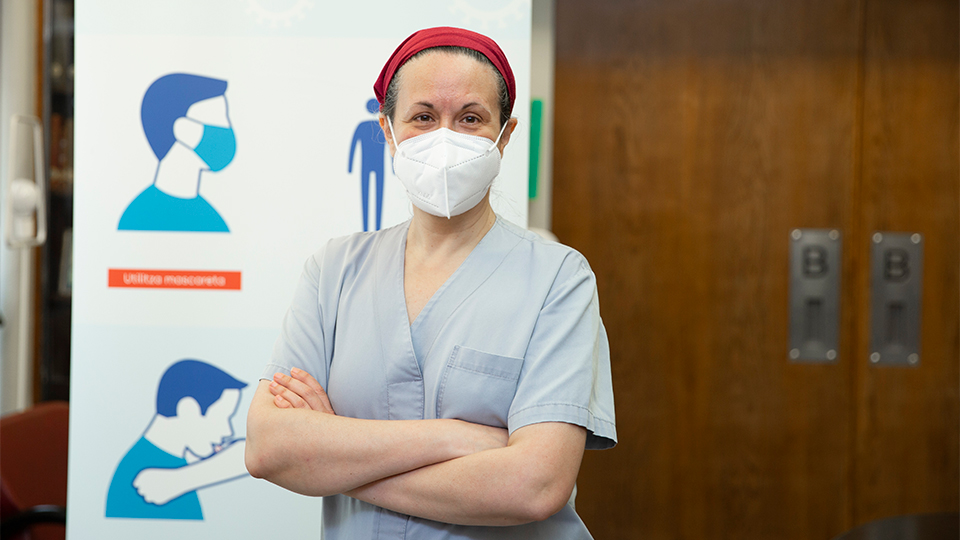Presbyopia correction options: glasses, contact lenses and surgery
10/02/2026

13/07/2020
Mari Carmen Pacheco is the Occupational Hazard Prevention Officer at the Barraquer Ophthalmology Centre, and along with Dr. Ramón Rey, has put in place safety measures due to the Covid-19 pandemic.
Did the pandemic take you by surprise? How did you react?
We were aware of what was happening in other countries and of the severity of the situation, so when the first cases appeared in our country, just like in pandemics in the past, an operational protocol was drawn up in the event of a suspected case so we could protect our staff and the rest of our patients.
The Spanish Decree declaring the state of alarm did not take us by surprise, because on Thursday 12 March, Prof. Rafael I. Barraquer and the Medical Management Team, had already decided that we would operate minimum services in the Centre from 16 March, so on the Friday before the state of alarm we had already arranged the internal resources to have patients postpone their non-urgent appointments or surgical procedures.
What guidelines have your been following?
We have followed the guidelines given by the Spanish Government and the Generalitat of Catalonia, and internally by the Centre’s own Management and Prevention Service (medical and technical), along with all the measures we had. First, we had to quickly establish both the human and material measures, but it all went very smoothly thanks to the cooperation of the Centre’s staff. After that, the changes weren’t as brusque and the Centre’s Management gradually incorporated appointments, surgical procedures, and staff into the schedule, which has helped us to progress little by little and supervise the measures adopted.
Over the first few weeks, only emergency cases could be treated. Was it difficult to coordinate the safety protocols?
It was difficult because of the lack of material and basic supplies: masks, gowns, alcohol, etc., but not because of our staff coordination. With the help of everyone, the measures proposed were implemented quickly to guarantee the safety of both our patients and on call workers (A&E, surgery, hospital nursing, reception, cleaning, maintenance, and canteen staff).
The Centre is now ready to welcome scheduled visits. What type of safety measures have you put in place?
Different measures have been put in place following the recommendations of the Spanish Ministry of Labour and Social Economy on the prevention of occupational hazards, the recommendations for businesses and workers about procedures relating to situations arising from coronavirus made by the Catalan Council for Labour Relations, and those made by ophthalmic associations for ophthalmology patients.
Measures adopted:
How has the Centre ensured that the measures were appropriate?
We recruited the services of Audelco, an auditing company, to get the “Covid-Protected Space seal and Opening Plans Aproval”. Its aim is to provide customers and staff with the confidence that the workplace has a management system in place to mitigate the risk of COVID-19 transmission, in accordance with the Spanish Ministry of Health guidelines, the ILO recommendations and the applicable legal regulations.
The model has a double approach:
Are you happy to have received the COVID-protected space seal?
Yes, because it demonstrates that we're doing things right and that the measures adapted are suitable for guaranteeing the safety our patients and staff. It's a reward for the efforts made.
Are there any anecdotes of patients or staff that have affected you or caught your attention?
Perhaps the thing that most caught my attention over these months, is that despite our fear of this situation—either during lockdown or subsequently as we gradually increased activities—us humans have the ability to adapt. We have the common aim of caring for patients, without dwelling too much on that fear of getting sick ourselves. Despite the tiredness, we're moving forward so that we can get back to normal.
If you were a patient, would you be completely happy about coming to the Centre?
Indeed, I would. I spend so many hours here, going up and down the stairs (laughs) and I feel as safe here as I do at home.